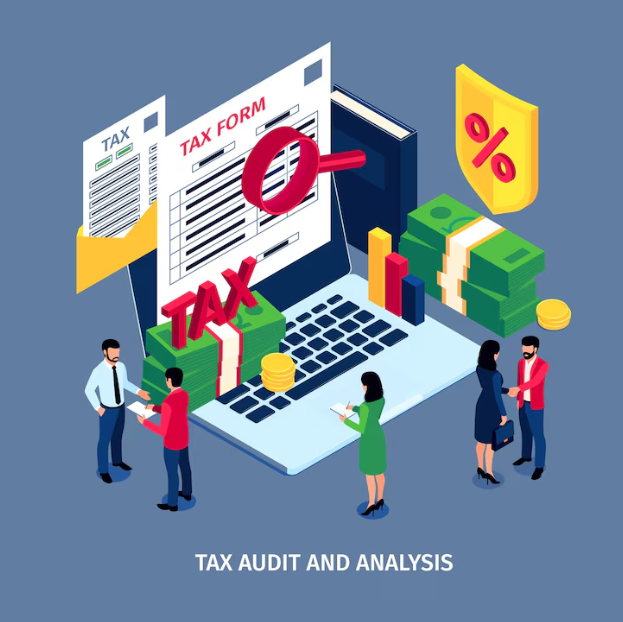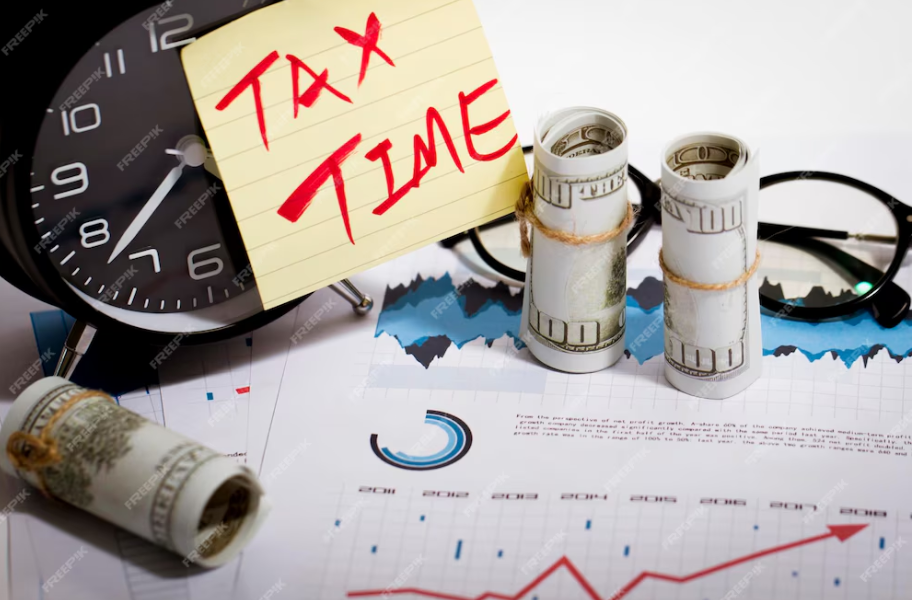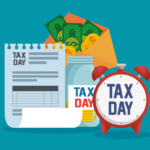Income tax on forex trading is a mandatory payment that all individuals, bodies of persons, Hindu Undivided Families (HUF), and firms must make to the government as part of national development initiatives. As part of their preparations to begin forex trading operations, traders should become acquainted with income taxes before engaging in their operations.
Trading profits may be divided between business income and capital gains income and are taxed at various slab rates depending on an individual’s taxable income.

Introduction
Forex trading can be an attractive option for individuals seeking to diversify their income and generate short-term capital gains. However, traders should remember that forex trading in India is subject to taxation; keeping accurate records, understanding applicable regulations, and consulting a qualified tax professional are essential steps towards mitigating risks and maintaining compliance.
Forex trading profits in India may be classified either as business income or capital income and taxed accordingly; business income will be taxed at individual’s applicable income tax slab rates while long-term capital gains could incur different rates based on whether they were short or long term in nature.
Forex trading in India is overseen by three governing entities: the Reserve Bank of India (RBI), Securities and Exchange Board of India (SEBI), and Foreign Exchange Management Act 1999 (FEMA). While SEBI handles securities trading, FEMA governs forex transactions by setting guidelines and limits – restricting how many pairs may be traded simultaneously while prohibiting unregulated platforms & transactions such as binary options trading altogether; legally, only exchange-traded derivatives may be traded within India.
Taxation Basics
Forex trading can be an exciting and profitable venture; however, traders must fully comprehend implications of tax on forex trading before embarking on this adventure. Failing to comply with tax regulations could result in penalties, interest charges and legal complications; by understanding them properly traders can maximize financial outcomes while remaining legally compliant.
India recognizes F&O trading income as non-speculative business income under Section 43(5) of the Income Tax Act; any profits you generate will be added to your annual earnings and taxed according to the income slab rate applicable for your annual earnings. Additional charges and levies such as TCS, SEBI fees, STT taxation taxation stamp duty should also be taken into consideration when filing taxes on F&O trading income.
Forex traders can claim deductions for expenses directly related to forex trading, such as brokerage fees, internet service charges, and research fees. Such deductions can help reduce taxable income and overall liabilities of tax on forex trading.
Forex traders must also keep an eye on any applicable tax on forex trading treaties or withholding taxes that might impact how capital gains and speculative business income are taxed when selecting the optimal structure for trading activities.

Taxation of Capital Gains in forex trading
Capital gains occur when selling stocks or mutual funds at a higher price than what was paid for them. They may be taxed as either short-term or long-term gains depending on how long it has been owned; short-term gains usually incur ordinary income tax rates, while longer-held assets could incur preferential rates that lower your taxes; this distinction is crucial to day traders who must account for trading profits when calculating their taxable income for taxation purposes each year.
Short-term capital gains are calculated as the difference between its purchase and sale prices, plus any securities transaction taxes (STT). Any applicable STT will then be added, followed by individual tax slab rates with cess and surcharge applied (with some exceptions, such as sales of property that do not incur STT charges).
In 2018, CBDT issued an announcement relaxing reporting capital gain when filing tax returns, so individuals and Hindu Undivided Families no longer had to disclose profits from various equity shares and units of equity-oriented mutual funds separately; rather, they should report one net consolidated sum under Section B7 on ITR-2 forms.
Taxing of Speculative Business Income
Income tax liabilities of traders depend on their trading turnover and surcharge of 4% is applied against total income. Therefore, traders are recommended to pay advance taxes in four instalments on 15 June, 15 September, 15 December and 15 March so as to avoid interest charges under Sections 234B and 234C.
Intra-day trading income can be considered high-risk business income because of its unpredictable nature; losing all or part of one’s initial investment could occur. Hedging transactions, on the other hand, do not fall under this classification since their sole function is protecting investments against possible losses.
Individuals’ speculation business income is subject to their applicable income tax slab rate along with any other sources of income such as salaries or capital gains. Any losses can be carried forward for four years.
“Speculative income” isn’t defined in the Income Tax Act; however, it refers to any high-risk business where both loss and profit potential exist – for instance trading stocks, commodities, currencies or derivatives.

Allowable Deductions and Expenses
Forex trading can be an attractive investment option for individuals looking to diversify their portfolio, but traders must remain mindful of any tax ramifications of their trading activities; understanding these regulations is vital for accurate reporting and compliance purposes so they may seek professional advice to reduce overall tax liabilities.
Tax on forex trading income depends on a trader’s classification and intent. If their activity represents significant and regular business endeavor, their income will likely be considered business income and taxed accordingly–typically between 5–30% plus surcharges and cess.
If the trading activity can be classified as speculative, profits generated from speculative trading will be considered capital gains income and taxed accordingly. To comply with tax rules regarding capital gains rates, traders must keep careful records of both their profits and losses to calculate deductions that can lower taxable income.
Trading profits may qualify for reduced taxation under Section 1256, which offers a lower tax rate for 60 percent of trading gains and losses up to an annual cap of $3,000; traders should carefully calculate any potential tax savings when filing under this provision.
Planning Strategies for tax on forex trading
Forex trading can be an incredibly profitable enterprise. Still, traders must remain mindful of all associated charges – such as currency exchange fees and brokerage firm commissions as well as premiums on derivative trading contracts. A robust tax planning strategy can help minimize these expenses while optimizing returns. Traders must ensure they file accurate income tax returns by the specified deadlines in order to remain compliant with tax regulations and avoid penalties.
Furthermore, traders should become acquainted with each of the different tax brackets and how they impact trading profits, as well as seek professional advice to optimize their tax planning strategies.
Maintaining accurate records is the cornerstone of successful forex trading and will enable traders to maximize deductions and lower taxable income size.

Filing Income Tax on forex trading Returns
Forex trading has rapidly become an attractive form of investment activity in recent years, providing individuals with an avenue for earning significant amounts of income through this form of trading. As per tax regulations, traders should file tax for profits earned from forex trading.
Forex trading profits in India may fall under capital gains or business income so depending upon the nature of profit one should file their tax on forex trading, however, forex trade profits fall under business income tax slab rates and may be taxed accordingly. It is advisable to consult professional CA before filing tax on forex trading and maximizing the efficiency of tax while following the rule of filing tax.
For further information on tax ,Stock market, Forex market ,Cryptocurrency kindly follow our blog for further updates.











